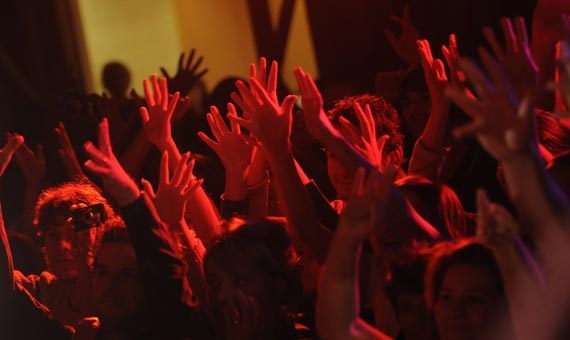While deaf citizens consider themselves a ‘linguistic minority,’ governments and public institutions insist on labeling them as ‘disabled’, Marianne Schulze says. She calls for the ‘missing’ sign-language act and a more ‘aware’ society.
THE REPUBLIC OF HUNGARY signed the UN Convention on the Rights of Persons with Disabilities in New York on March 30, 2007, and ratified it in July. “But where is the sign-language act?” asks human rights consultant Marianne Schulze, who is concerned about the lack of official recognition of sign language users. She believes it proves the lack of awareness of legislators, decision makers and society at large.
“They don’t know or don’t realize that their fellow deaf citizens have a right to use sign language in all walks of life,” she told Diplomacy and Trade. In the European Union, an estimated 22 million people have partial or full hearing loss, which is one in seven people. In Hungary, there are up to 60,000 deaf or partially hearing people. “18 of the 60,000 have higher education, which is outrageous,” Shulze argued. She adds that there are even some European universities offering full degree programs for the deaf in several disciplines, proving that their capacity to learn is on par with those of unimpaired hearing. “Unfortunately, in countries like Hungary, sign language users are still not taken seriously due to the ‘dominance’ of hearing culture,” Schulze said.
“The language of deaf people has the right to be protected as if it they were a national minority,” Schulze claims. According to her, increased recognition would be the first step towards solving the issue of ‘involving’ and giving ‘true citizenship’ to the deaf community. “The conditions of exercising democratic rights are impossible without this. We have to appeal to the responsibility of society. It is one of the subtle areas in life where we expect solutions from society, where we look at technology to bring about real change and add real quality of life,” she said. “Consequently, human beings, whether deaf, hard of hearing or speech impaired, would be able to communicate with each other on an equal level.”
International Deaf Day
Hearing loss is an invisible disability and the most common birth defect.
The largest interest representation organization for deaf and hard of hearing people living in Hungary is the Hungarian Association of the Deaf and Hard of Hearing (SINOSZ), that recently organized a conference and cultural festival to celebrate ‘International Deaf Day 2008’. The organization affirmed its demand for sign language recognition as an official Hungarian language. The series of events at Budapest’s ‘Godor Club’ was visited by 5,000 people discussing the exclusion of deaf and hard of hearing persons. Marking the concept of ‘deaf culture’, the festival included a concert by Finish Sign-Rapper Marko Vuoriheimo (also known as ‘SIGNMARK’), who attended the conference by SINOSZ lastDecember, at the Hungarian Parliament, where president Katalin Szili said she would support the recognition of sign language as a priority.
Separate Language
Sign Language (SL) is a language of the hands, body, face and head. SL has complex rules of grammar and expansive vocabulary in everyday conversation, intellectual discourse, rhetoric, wit or poetry. Sign languages in each country have dialects like spoken languages. “In the United States, American Sign Language is the fifth most prevalent minority language, after French, Spanish, German, and Italian,” Schulze claims. She beleives children can learn sign language 2-3 months earlier than speech. “There are up to 4,000 recorded languages in the world, but only in the United Kingdom, Cuba and Mauritius is SL officially recognized by the government,” Schulze said.
In Hungary, SINOSZ campaigns for deaf people’s right to use SL, to be educated in SL, and to access information and services through SL. “We believe the best way for the deaf to be a part of society is legalizing SL, giving its ‘speakers’ the right to use it in all walks of life, bringing down years of language discrimination.” The Convention provides SINOSZ with a number of rights providing increased inclusion of deaf and hard of hearing persons in Hungarian society. The Hungarian government should compel televisions to use subtitles. According to Shulze, subtitles are vital for deaf and hard of hearing children and more subtitling of children’s television programs is necessary. “It is difficult for the hearing world to understand their needs,” she said. “I am convinced that electronic communication could close this gap, but I would be even happier with a truly open society where all mediums further this cause. It is simply a matter of political will.”


Leave a Reply Cancel reply
Top 5 Articles
 MVM Buys Huge Solar Power Plant in Tázlár December 20, 2023
MVM Buys Huge Solar Power Plant in Tázlár December 20, 2023  Tensions Escalate Between U.S. and Hungary after… March 15, 2024
Tensions Escalate Between U.S. and Hungary after… March 15, 2024  Hungarian Central Bank Head Warns of Autonomy Under Threat March 1, 2024
Hungarian Central Bank Head Warns of Autonomy Under Threat March 1, 2024  Alpine Comfort at a Mountain Lake December 19, 2023
Alpine Comfort at a Mountain Lake December 19, 2023  Hungary Faces Economic Headwinds as Recovery Falters February 16, 2024
Hungary Faces Economic Headwinds as Recovery Falters February 16, 2024








No comment yet. Be the first!